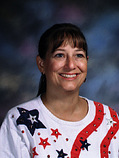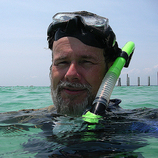Discussion
Report Discussion as Inappropriate / SpamPluto
Here's a good article I found about the text book companies - http://news.com.com/Textbook+makers+grapple+with++Pluto+demotion/2100-1025_3-6109409.html
August 25, 2006, 12:00 am [ report as inappropriate ]That textbooks would have to be rewritten (as if that's ever a reason to adhere to something) is hilarious! I appreciate the humor. Knowledge rolls on and even when I look at my astronomy and cosmology books from college ('88 grad), they're dated. It also highlights the importance (if anyone really thinks this is important in a practical sense) of teachers staying abreast of their content area so they can clarify for students the sticky points. But I really liked activity the teacher from the other posting who had students develop their own definitions of planets. Definitions become the means for communication of what things are categorically, and that Pluto definitely differs in significant ways from other planets, and we've known that since it's discovery), regardless of whether someone agrees, having the global discussion to provide more clarity was valuable to the astronomical community. And regardless of what they're called now (dwarf planets), we at least have a more refined categorical definition for them. And I also like that there is dissention (though, not for traditional or nostalgic purposes). It shows that science is always open to revision should a better explanation of phenomena emerge and strives not to depend on opinion or habit, but on shaping itself to best describe and understand reality and not trying to define reality by our subjective whims.
August 25, 2006, 12:00 am [ report as inappropriate ]One of the real benefits of the Internet is that when new information is discovered, we have immediate access to it and so do our students. Anyone who has been teaching long knows that the text books are nearly out of date the minute they are printed. The Internet however, can be up to date (provided the information is legit!). This is where I think online textbooks will really be a benefit. A textbook online can now have an addendum added quickly and seamlessly (at least on the student end).
August 27, 2006, 12:00 am [ report as inappropriate ]I've taken a few astrophysics courses and this was really brought up about 5-7 years ago. I recently gave students a project to come up with an operational definition of a planet, tell whether Pluto falls into planet or not given their definition, and tell how many planets there are.
Only a few truly gave good SCIENTIFIC definitions to tell how many planets there are and those that did came up with either 8, 15-20, or thousands of planets.
They all found out at the end that there is no possible SCIENTIFIC definition that creates 9 planets.
As a lesson, this could be a valuable one and one where you truly can reflect on yourself as a scientist. Science is forever changing and this is just one example. Biologists reorganize stuff all the time, it's just when physics does it's more important (haha just a physics joke). I believe that is the most important piece that can be taught: science is not a belief, it's a process.
I teach physics and math to high school students.
I would have voted for no "dwarf planets" just astroids or something and instead discussed accretionary disks and how Pluto probably did not form in the main disk that the others did.
So I am new to this board but let me tell you how I would approach this. One thing that people need to understand is that unlike history which is the same story with just more details every time that you hear it, science is this huge ball that is still rolling down the hill picking up bits of information which being slowly erroded away with all of that information we thought would hold true. With the choice to not include Pluto as a planet shows me what I love about this field. You have people who are going to fight and prove their point. You never hear a math teacher talking about how they have moved 3 before 2 or removed it all together. You are going to opposition to this but that is the wonderful thing of making things of going through disequilibrium. In the classroom use it as a discussion. Tell them that to examine what defines Earth as a planet. Compare it to what you know about Pluto. Does it meet the same criteria. Then do it in compared to an asteroid. What can you tell about these differences and can we understand that there will be changes. We are still in awe that some where down the line our solor system will crash with another and then what are we are we going to do in definition of our solor system. You have to inform the students that this is something that will change a number of different times over their education, their children's education, and so on. You have to be ready to meet opposition but most of all you have to make sure that they understand that their is science behind this and it was not just a change of thought one day!
August 25, 2006, 12:00 am [ report as inappropriate ]I think that this is a great idea to use. Also as others have commented, we need to help students understand that science is not finite, rather an ever expanding body of knowledge that bends and flexes as we learn more. Truly this is the field of the future and along with technology only expands. What a great lesson to teach the 21st century students.
August 25, 2006, 12:00 am [ report as inappropriate ]As a teacher, it provides a great opportunity to contrast the nature of science with other subject areas. How observations of natural phenomena (in this case, the continuing discovery of new objects as our "eyes" improve with emergent instruments) leads us to better understanding of the universe and forces us to look again at our theories. Seeing the paradigm change (astronomers have always been a little uncomfortable about calling Pluto a planet thanks in part to our fuzzy definition) happen internationally was a visible display of how science rolls on (I haven't heard the "rolling snowball" metaphor before, but it makes a lot of sense). It contrasts how data is still king, but how opinion (when all the facts are not in) can still influence science. It shows the limits of science, as well. Categorizing things is an imperfect science -- all we can do aside from having a different category for every single object is get closer and closer according to our need to logically discuss phenomena.
It's also a good illustration of how people (and communities), once indoctrinated, resist changes, even if they're better. I'm not saying we've arrived at the ultimate distinction between planets, asteroids, dwarf planets, and the IAU has ruled that ...things that orbit the sun, that aren't satellites, and that don't qualify either as 'planets' or 'dwarf planets'--are officially (and none too poetically) named 'small solar-system bodies.'"* But because we all learned the 9 planets, there is a lot of public resistance to change... This would be a really great discussion -- why are we so resistant to new ideas? Is it our natural homeostasis, physical and mental? Is it laziness? Change aversion? Mental atrophy? "Momentum" of a concept? Whatever the reason, being able to change in general and adapt ourselves to changing environments and ideas is a seminal coping skill, and the more we can enable students to deal positively with change (especially as high school kids transition into adulthood with new responsibilities), and give up some of their old habits that will not serve them well as adults, the better they will adjust to their lives. Since I see the most important part of education being the broader mental modes (moreso than the specific content), this would be the bigger idea -- one's approach to new information, being open to it, being able to incorporate it appropriately into a worldview.
Regarding the vote, even though the entire body was not represented, my best guess tells me that those closest to the topic, probably more of the preeminent scientists who specialize in planetary science, were present and their discipline was probably overrepresented, which makes me very comfortable accepting the combined opinion of their expertise than any other group of scientists, including the full body of the IAU! I don't know if that's true, but it seems likely. And, it could actually be tested if someone wants to take that up as a project.
* I received this citation in my "Knowledge News" e-mail newsletter this morning.
A great thing about teaching aboout space in science is that it presents great ways to bust some myths. One of my favorite activities is the toilet paper solar system. http://solar.physics.montana.edu/tslater/plunger/tissue.htm
It is in resources as well. In this, students can see relative distance of planets using a role of TP. What is so great about this is laying the groups of TP next to each other to visually see if they match with each other's. Very quick and easy assessment. Then the discussio that follows where you visually show how far the planets are from each other. This is so powerful since truly in a textbook and on posters, students get a false sense of the distance of planets. Basically, in a text or on a poster, you can't show relative size and relative distance together. Of course, we now have to delete Pluto from everything...
It has been a long time coming.
Glad they decided on dwarf planet rather than Plutons. Still think the term minor planet sounds good.
I think the kids are more shock up than we are because most of them haven't been in on the debate over the years. I think this will be a nice memory for them unlike some other space exploration disasters.
well I taught astronomy toward the end of June this year and I incoporated into my lesson of how Pluto was questioned as a planet or not? There was a article in the holt physical science book on it. I had questions for them and then they had to formulate thier own opinion and suppor thier answers with evidence.
So now that it's gone public, I think my students probably got a kick out of it. Which is awesome because science is always changing, science is all about exploration, inquiry and all the good stuff.
Pluto's category has been in question since it was found. It 's size, being terrestrial, odd orbit, and then that annoying "moon" - Charon that is nearly Pluto's size, all made it's identity a bit sketchy. From all the posts folks have written, I almost think it was better now knowing what it was. Everyone had such great ideas for having the students compare/contrast and formulate decisions regarding it's identity. Alas, we have the current answer...now what?
August 27, 2006, 12:00 am [ report as inappropriate ]23.01.21.03.10.52 © 2026 Pearce, LLC







I tend to disagree with the decision. The article I read (from the MSN home page) said that only a little over 450 scientests (out of thousands) voted on the matter. Rather sounds like some political elections. Anyways, the definition of a planet is flimsy and calling it a "dwarf planet" doesn't make sense. If it's not a planet, why is planet in it's name? I think they're just trying to draw attention to themselves because they don't get enough. It would also mean rewriting all the textbooks in all the schools in all the world just so they get their little change.
August 24, 2006, 12:00 am [ report as inappropriate ]As you would see in my profile, I am not actually a teacher yet, but training to become one at Wright State. On that note, if I were teaching a middle school class on this matter, I would discuss with them what a planet should be, and why is it that the wording of the new definition is insufficient. I would also review the facts about Pluto, in comparison to Earth, and the history of Pluto (when it was discovered, etc.) Being only a student myself, I don't know what else to do.